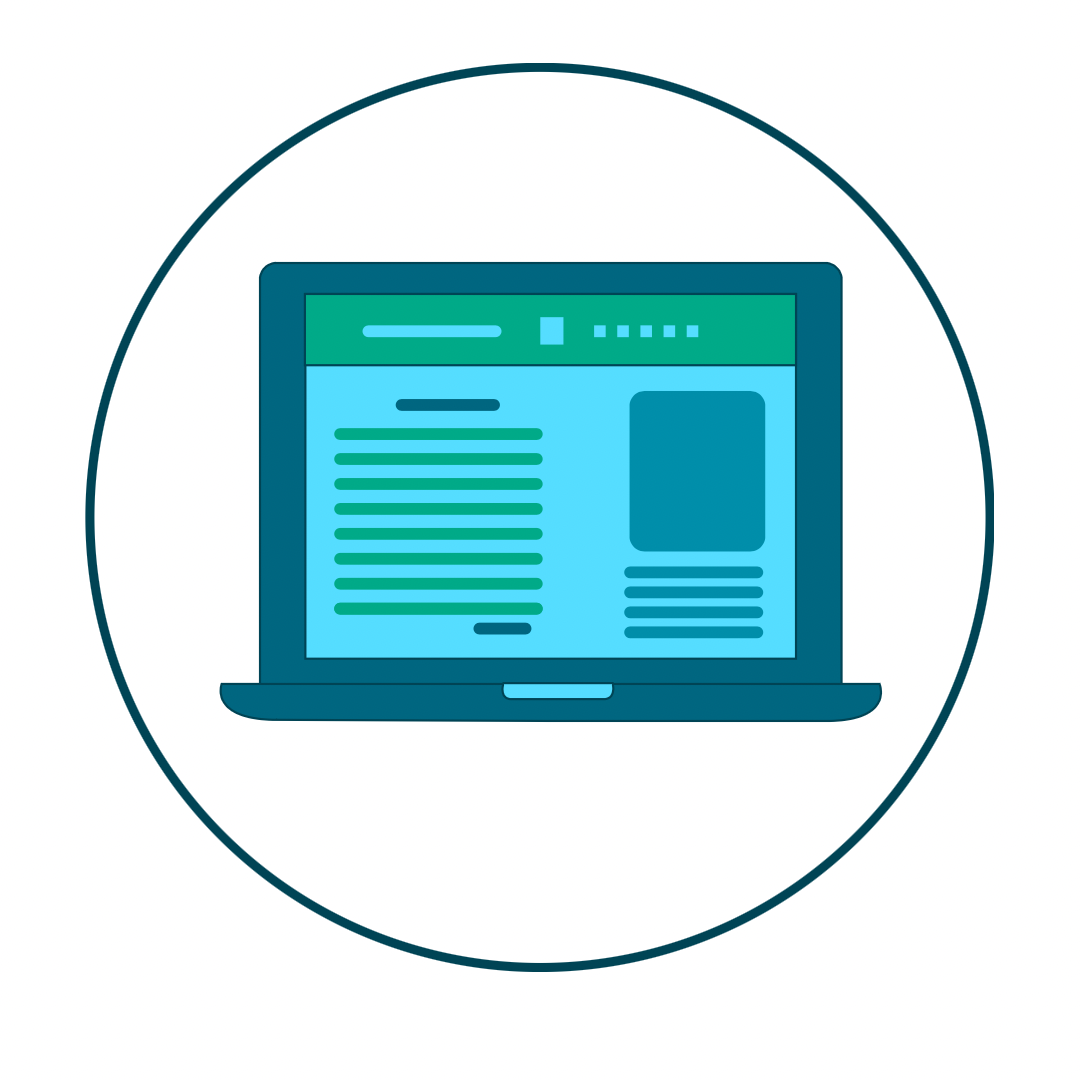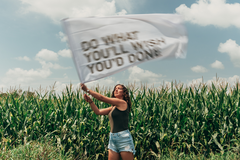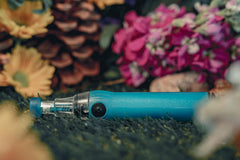Let's Chat: Relationships & Mental Health


*If you know someone who would benefit from from a fully transcribed version of this episode, please reach out to us at support@mygenteel.com
Mitra: Thank you again for joining us! I feel like ever since I saw you online, you had such a great way of connecting with people. I see you responding to every single comment, sharing long stories on what methods help with migraines for example. Just so you guys know, those stories take a lot of time! Basma’s sittin’ here between classes and work, making little graphics for you guys to post and share--so I hope you know that Genteel sees that and appreciates that, and I’m sure everyone joining today does as well.
Basma: Thank you, that means a lot! I appreciate it. I’ve always said that social media is my outlet. So with school and other stressors in my life, social media is where I go, and I feel safe here. I think it’s really important, I’d like to think that I’ve created an amazing community here, so that’s why I feel so safe and welcome. I love getting lost in the little little little things like creating the stories, or coming up with things to talk about, so I love it.
M: And viewing all those usernames as people behind the screen
B: ---Absolutely!
M: I mean to think that you have three thousand followers now, that’s three thousand real, organic people that follow your story, and that’s why I want you to talk about this topic today! You know, it’s Mental Health Awareness month, and originally I wanted to talk about relationships. But after our initial conversation, I realized that they're so interconnected. So I wanted to ask our audience and see what questions they might have for you, and then I wanted to ask you a couple of my own questions as well.
B: Okay, I’m excited--Oh and yes, that was Chloe
M: Awwww!! Look at little Chloe!!! Oh my gosh. Mochi is sleeping behind me now.

Okay, I just had to let you in on our little puppy twinning moment--back to our chat.
M: Alright, so from my perspective, since I don't have diabetes, what’s something someone without diabetes can do or know to make you feel safe, or make their loved ones feel safe?
B: Yes. One of the biggest things that I have found helped me growing up--my parents were really adamant about it, and I’ve carried into my relationships since becoming an adult is feeling supported. So that obviously entails a lot of things, and it’s different for everybody, you know? I have friends that like to vent, but they don’t want to hear opinions back, right? That is totally a way to be supported. You want to be able to air your feelings out, but you don’t want to necessarily have things you’re being told that need to do. For me, one of the biggest ways to feel supported is just by having someone (T1D or non T1D) willing to listen. Willing to learn about my diabetes, willing to learn about certain things that I may need or when I may need them. And we don’t expect (especially our non T1Ds) you guys to be ready for everything, and memorize everything about our management, that would be way too big of an ask. It takes us years to get to that point ourselves. But just the willingness and the fact that you guys care and you show that you care I think is one of the biggest takeaways that I've learned. I always feel more comfortable in that relationship, in that friendship, or sitting with that person for hours. Because I know that if something were to go wrong, they’d be willing to learn what it is that I need at that moment.
M: Absolutely, and just being around you, I’m sure like observing what you have to do daily--that in and of itself is huge. It’s good to open your circle instead of using media to define your idea of diabetes-- ask the actual people that are living with it. It’s hard sometimes to ask about things you don’t know about.
B: Exactly
M: People feel really self conscious about so i think you also do a really great job creating a safe space where people can ask questions, and you’re much more than your diabetes as well. You share so many aspects of your life and I think as a creator in the diabetes space, it’s really easy to feel limited so i love what you’re doing there.
B: You’re so sweet, you’re one of my biggest hype women, I love it.
M: haha oh my gosh, yes!
B: But going back to asking questions, I think we often don’t give enough credit to our non T1D friends and family members. Diabetes is really intimidating. Like, it’s a big thing, you know? It’s a big part of your life. And for friends and family members, it can become a big part of their life too. So it can be kind of daunting to be like well what can I do if something wrong happens? Because as a society we tend to think, if we don’t talk about something, it won’t happen.
M --YUP
B --If we don’t talk about you going super low or super high, it won’t happen, right? BUT I think it’s better to be prepared that it is to be left questioning, “ What could I have done earlier or sooner to mitigate whatever just happened?” So I think as a T1D I try to give more credit to my non T1D friends and family members that feel a little overwhelmed by asking me. It’s a safe space, I like to say that, there are NO stupid questions. And On the other hand as well, we don’t expect you guys to know it all, don’t worry. We’ll show you what needs to be show, we’ll tell you what we need, we’re pretty vocal don’t worry
M *laughs* and talking about relationships, I think one of the reasons that you’re so good at what you do now is because your wonderful mother gave you so many tools and resources by taking you to ADA events, and these times where you can network, not only professionally but on a soul level and find lifetime friends. I’d love to hear about how integral those relationships have been for you.
B Oh, absolutely. So for those of you who may not know, I was diagnosed when I was three, so I’ve had it for most of my life (I’m now 24). And my parents, my mom especially was really adamant about getting us involved. Since I was young, I’ve always kind of a bit hesitant to tell people I had diabetes. So that kind of carried throughout, but I do appreciate the fact that she always supported me, and she always encouraged me. Whether I took that decision or not she left up to me, which I hink is super important because it allowed me to grow into who I am as a woman, but also as a woman with type 1 diabetes. But we were always at events, and I started to go to diabetes camp when I was 5, which that was life changing for me
Cut to me, laughing so loud that I obnoxiously clipped the audio--
M- “HAHA [ inaudible-- I’m sure the Crystal Light was life-changing too! ]
This was in reference to a recent instagram story she had posted of her making a Crystal light, reminiscing on her diabetes camp days. In her words, her opinion on loving Crystal Light “REALLY SPLIT SOME HAIRS” in her community. In her subsequent polls, some of her audience looked back at this diabetes camp ritual and shuddered, while others were left in a sweet daze of nostalgia. After watching that clip back (& cringing at the fact that it sounded like I laughed in her face about diabetes camp) I realized something way more important. This is a perfect example that while not everyone has the same experiences, a little memory shared on Instagram like this can connect thousands of people together.

B: It was life changing!! Because let me tell you, I literally thought I was the only one in the world with diabetes. Because nobody in my school had it, I was the ONLY one. So I didn't see anyone with diabetes! I didn’t have any friends with diabetes, we didn’t know any families with diabetes yet. So I was like wow, this is sad, why am I the only one with diabetes? So when I went to camp, I saw all these kids, older than me, younger than me, my same age. I saw adults, I saw teen aids, and I started feeling a sense of community. Which is really the gap that I’m trying to bridge here. That sense of community makes a person feel so much less alone, and it makes you part of a bigger entity. So that was life changing because I stopped being so stubborn about doing shots because I saw other people doing shots. I wanted to be more in charge of my own [diabetes] management because I saw other five year olds being in charge of their own management. So it was definitely life changing. I know it sounds like such a little thing.
M No not at all!
B But in retrospect it was huge for me. So ever since then, just going to the ADA and all of these events --and not just organizations but meet-ups and things like that have been really amazing for me. And like you said, meeting your soul people, meeting a dia-buddy. The people that get what you go through on an everyday basis. It’s a connection you don’t really find it normal relationships because without even talking, we already understand what we go through. With one glance, I can be like “oh, you look low are you low?” and it’s like a different language, so that’s all I have to say about that.
M I mean it’s so true, to have connections with people who can truly, not just sympathize, but empathize with everything you go through. It’s so important. Do you feel like because of social media, it’s easier to find those communities and get connected? Or do you feel like it’s not as mainstream as it should be? What are your thoughts on really promoting social media as a way to mitigate mental health implications?
B I feel both. I didn’t know that this community existed when I first joined social media. My hopes in bridging that gap after I was national youth advocate (when I came back from that year) my whole thing about social media was like “Well there’s gotta be a way I can continue advocacy [on social media] so I can get to know more more people and reach more people.But the thing is, not a lot of people know how to go about that. When it comes to mental health, even more so. People don’t know what resources are available to them, they don’t know who they can turn to, what providers they can turn to, etc. So what I’ve always said, and I just had a class on policy in nursing school this past semester so was thinking about this a lot, is that the way we make resources available is super important. For mental health I think we’ve shined a big light on that this past year. But just accessibility, you know? That’s something we are kind of lacking in right now. When it comes to accessibility to diabetes programs for everyone--that are you know, low cost, or no cost at all. Accessibility to mental health initiatives is super important, we all go through it. People with diabetes are just known to be at a higher risk for depression and anxiety.
M I think up to 2 to 3 times more likely
B Exactly, we play Dr. Nurse, Practitioner etc….
For the rest of the conversation (we haven’t gotten to the juicy stuff yet) click here to watch! Thank you again to Basma for sharing her time and perspective. We loved getting to connect with you!
 Is there someone you want us to interview? DM us on Instagram, we want to know!
Is there someone you want us to interview? DM us on Instagram, we want to know!
Never Miss Another Blog






